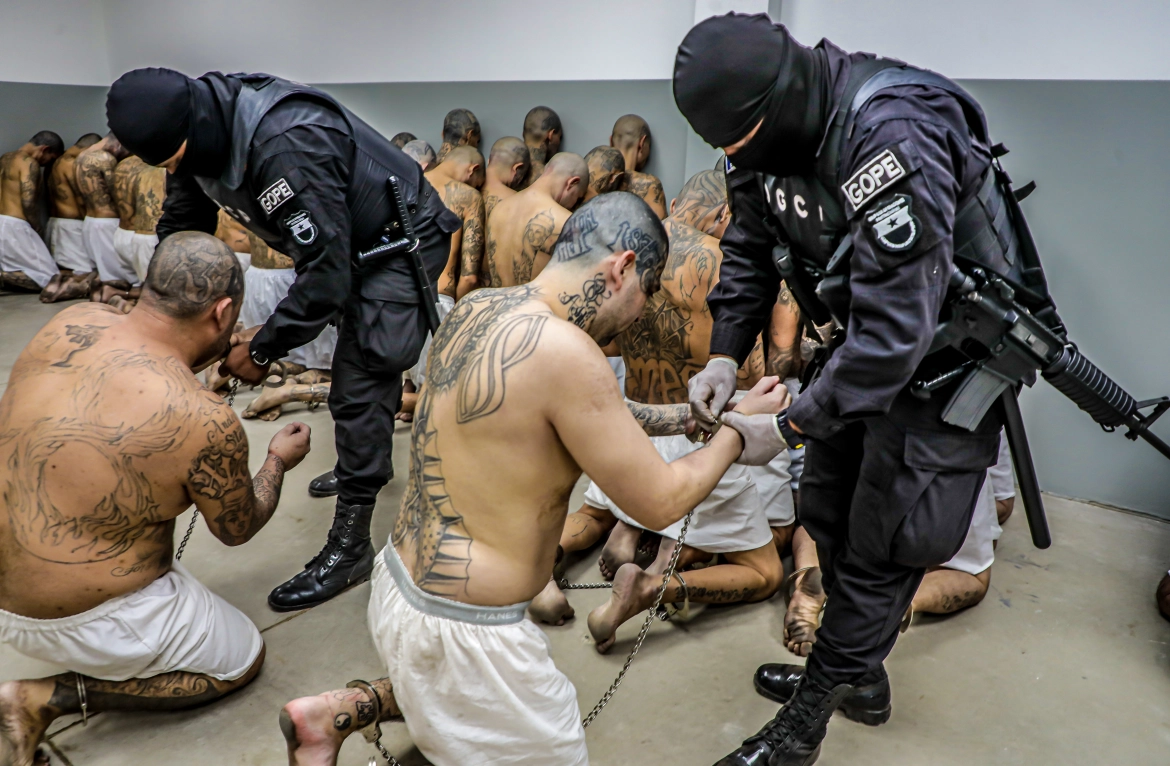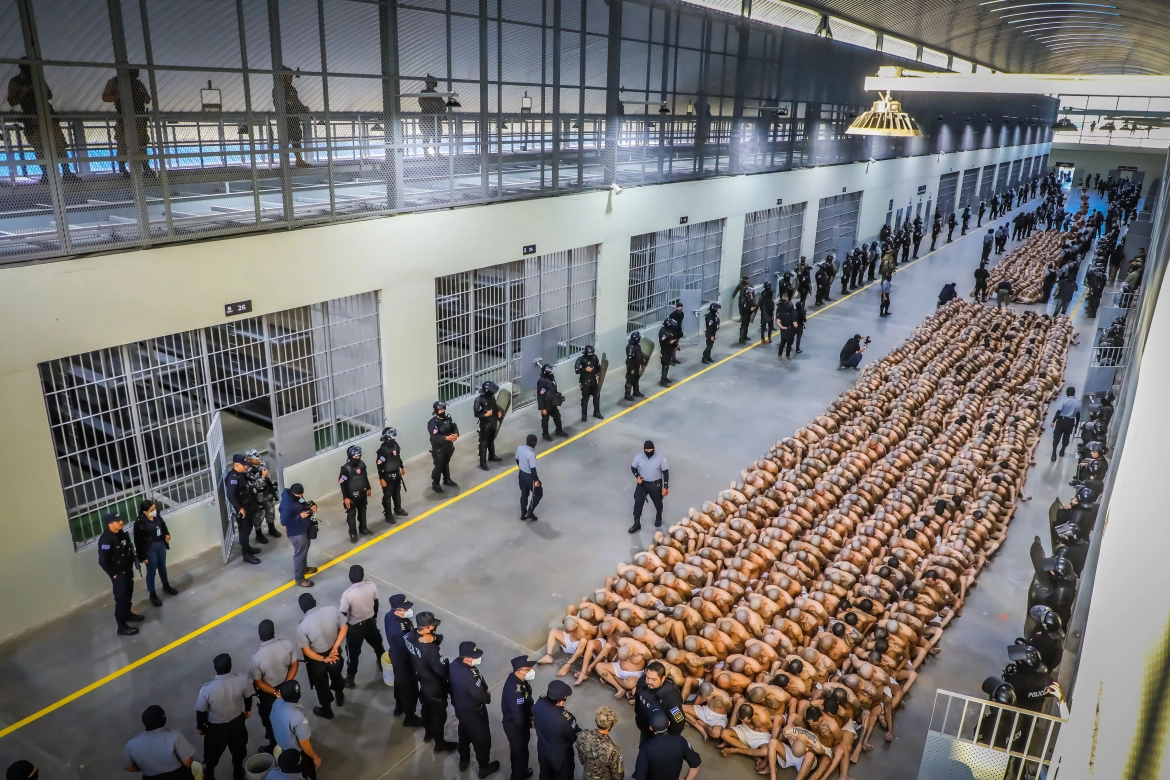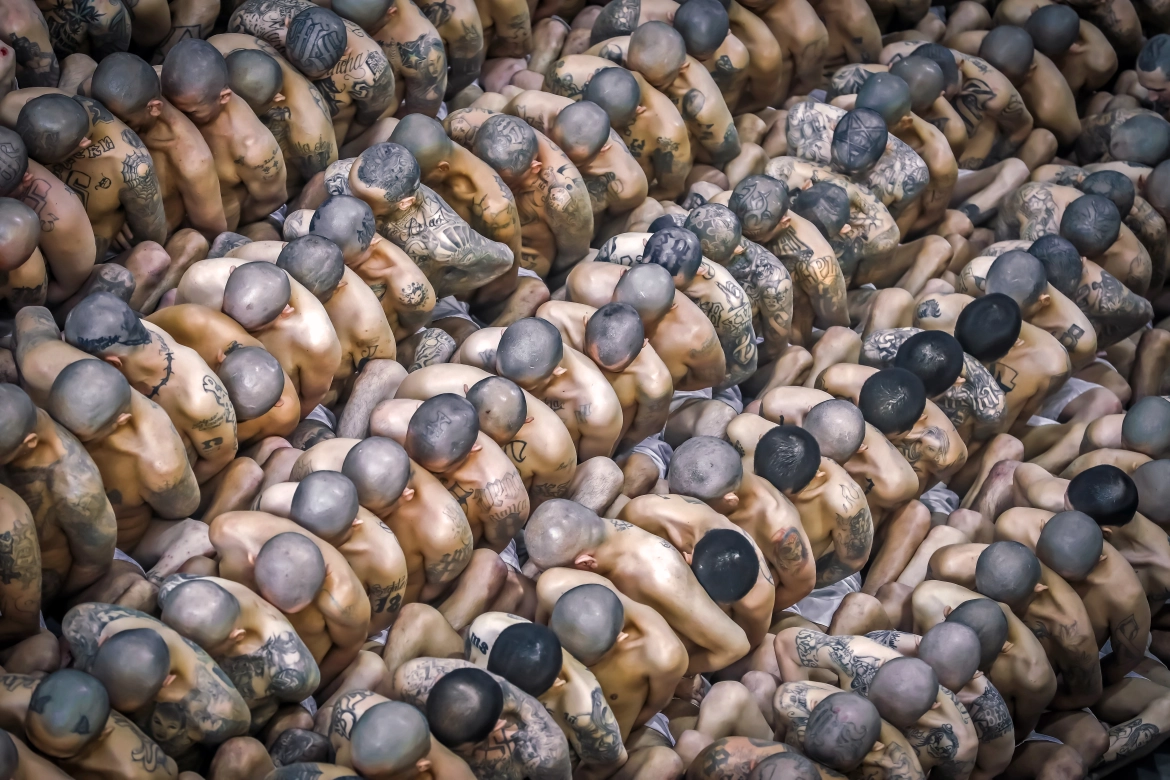By Evi Tsakali,
Recently, I came across shocking footage of massive groups of inmates, barefoot, tattooed, and with their heads shaven, being dragged in shackles, closely stacked together, by heavily armed guards in balaclavas. Looking into it, I would learn that, as part of Nayib Bukele’s “war on crime” a “mega-prison” has been built with a view to accommodating more than 40,000 gang members.
Bukele, the President of El Salvador, has been dubbed the “cool dictator” by many, while I have compared him to Poland’s Andrzej Duda in a past article of my mine presenting the parallel political lives of European and Latin American countries. In a recent tweet of his, he boasted of how “[…] At dawn, in a single operation, we transferred the first 2,000 members to the Center for the Confinement of Terrorism (CECOT)”, which he said is the largest prison in the Americas. “This will be their new house, where they will live for decades, all mixed, unable to do any further harm to the population”, he added. Likewise, Justice and Public Security Minister Gustavo Villatoro tweeted “We are eliminating this cancer from society […] Know that you will never walk out of CECOT, you will pay for what you are … cowardly terrorists”.

Tecoluca, 74 kilometers from the capital San Salvador comprises 8 buildings, with 32 cells each (100 square meters each, to hold, according to the government, more than 100 prisoners); the cells only have two sinks and two toilets each. Bukele has invoked a state of emergency to proceed with arrests that have concerned many human rights organizations. Human Rights Watch has been counting various human rights violations, including “mass arbitrary detention, torture, and other forms of ill-treatment against detainees, deaths in custody, and abuse-ridden prosecutions.
The powers that the President has acquired in the name of the state of emergency have been controversial, due to the fact that they limit some constitutional rights, for example by allowing the security forces to arrest suspects without a warrant. NGOs have argued that innocent people have been caught up in politics. Under the “State of Exception”, the right to association is also suspended. Around 2% of the country’s adult population has ended up behind bars. Young men are frequently arrested just based on their appearance, age group, or whether they live in a gang-dominated slum.

Nevertheless, Bukele’s anti-gang push and his promises that gangs will “disappear altogether” under his authority remain popular among Salvadorans, since criminal gangs such as MS-13 and Barrio-18 have been responsible for homicides, extortion, and drug trafficking.
Human rights violations, however, and especially that apparent, should not go unnoticed…
References
-
Salvador. Le président Nayib Bukele doit changer de cap avant qu’il ne soit trop tard. amnesty.org. Available here
-
Photos: Inside El Salvador’s new ‘mega prison’ for gang members. aljazeera.com. Available here




